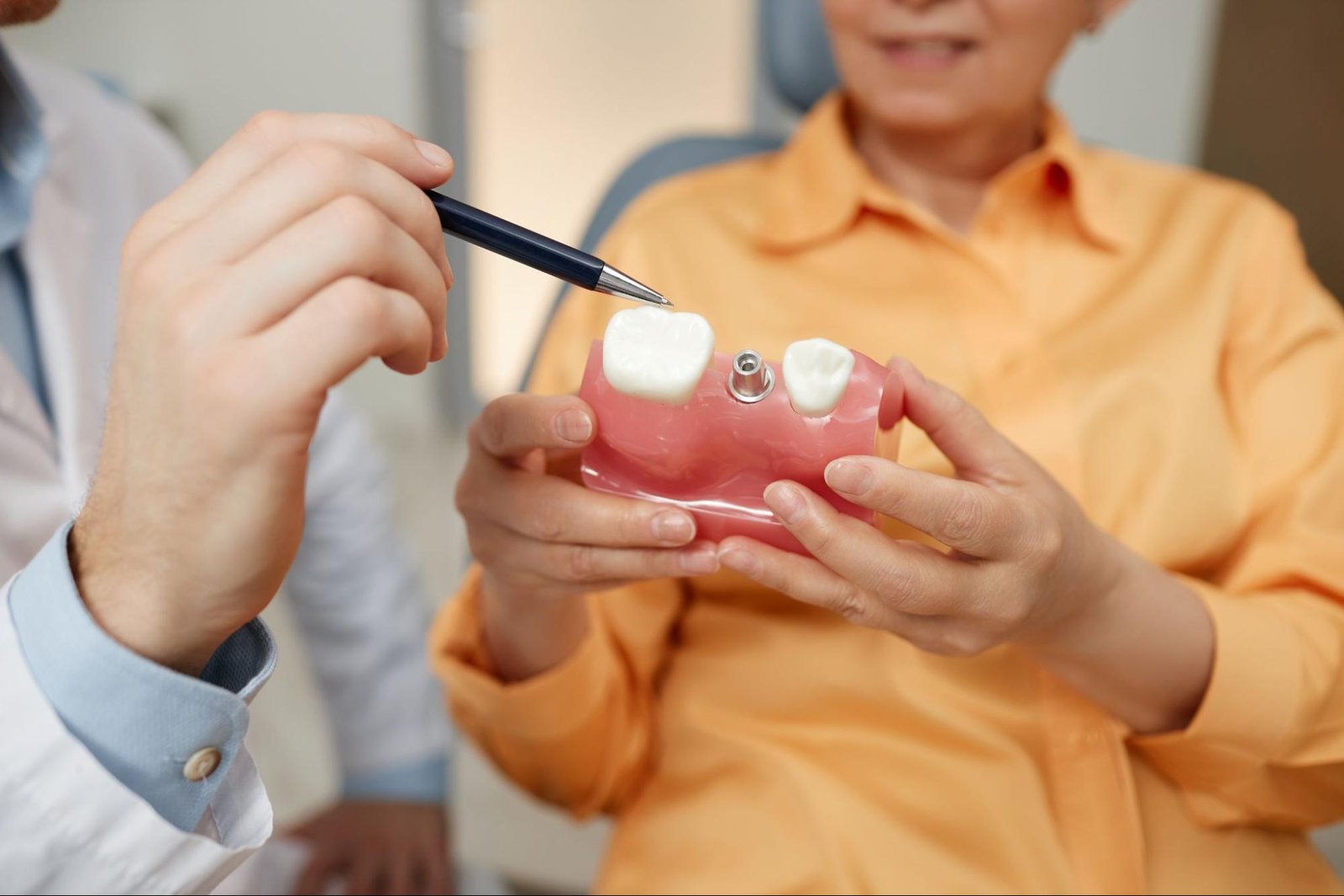
Dental implants have revolutionised the way we approach tooth restoration, providing a permanent and effective solution for missing teeth. Among the various types of dental implants available, subperiosteal implants offer a unique alternative for patients who lack sufficient jawbone density.
Unlike endosteal implants, which are placed directly into the jawbone, subperiosteal implants sit on top of the bone but beneath the gum tissue.
Subperiosteal implants are specifically designed for cases where conventional dental implants are not feasible due to significant bone loss. These implants are ideal when the jawbone has atrophied, leaving insufficient structure to support traditional implants.
Subperiosteal implants involve the placement of a custom-made, lightweight metal framework directly onto the jawbone, underneath the gum tissue. This framework is meticulously designed to fit snugly over the remaining bone, providing multiple anchor points that function similarly to natural tooth roots. The framework supports the posts that protrude through the gums, onto which the prosthetic teeth are attached.
Partial Tooth Loss: Subperiosteal implants can be utilized in areas with limited bone, providing a stable base for replacing several teeth in a specific area. Total Tooth Loss (Edentulous Cases): They are also suitable for full-mouth rehabilitation, offering a stable and secure foundation for full-arch dentures or fixed bridges. During a dental implant consultation, the amount and location of available bone will be assessed, helping to determine whether subperiosteal implants or another implant system is the best choice for your needs.
The cost of subperiosteal dental implants in Ahmedabad can vary significantly depending on several key factors, including the complexity of the procedure, the materials used, and the expertise of the dental surgeon.
In addition to the base cost of the implants, patients should also consider expenses related to diagnostic imaging (such as CT scans), surgical fees, and post-operative care. These are crucial for ensuring the success and longevity of the implants and can add to the overall cost.
For a more detailed comparison of implant costs, you may also want to refer to our related blog post, "dental implant cost," which offers further insights into the expenses associated with different types of dental implants.
Take a look at the remarkable transformation achieved through dental implants. These images showcase the significant improvement in the patient’s smile and overall oral function after undergoing the procedure.
Subperiosteal implants are ideal for patients with insufficient jawbone, offering a custom fit without bone grafting. However, they can be more expensive and carry higher risks. Here's a quick overview of the pros and cons of implants.
If you’re considering subperiosteal implants or any other dental implant treatment, contact Shilp Dental Care today to schedule a consultation. Our experienced team will guide you through the process and help you choose the best solution for your smile.
Reach out to us and learn how subperiosteal implants can transform your dental health.
Sign up with your name and email to get updates fresh updates.